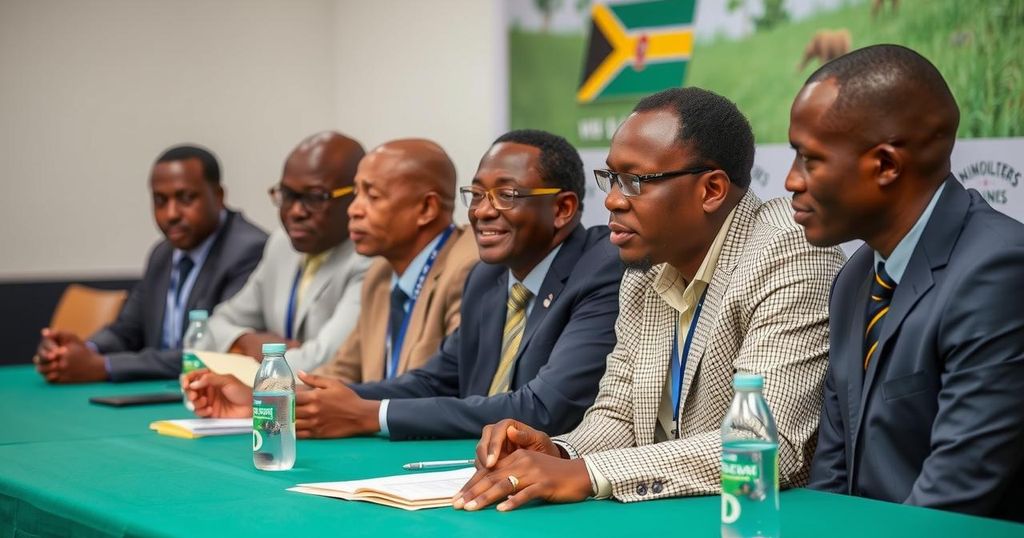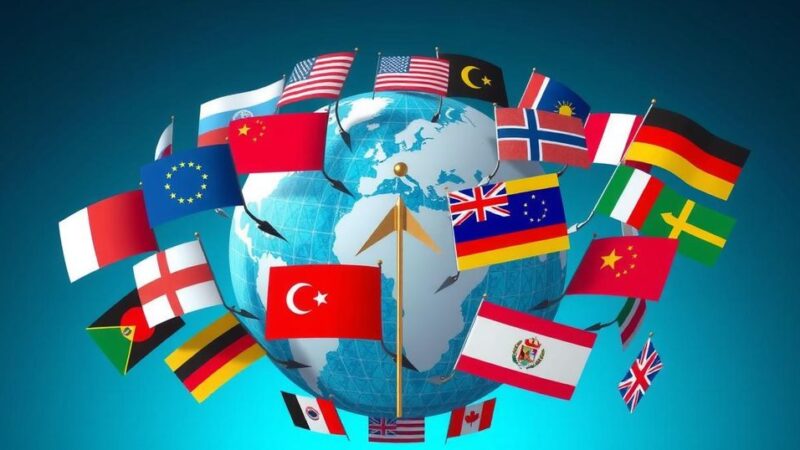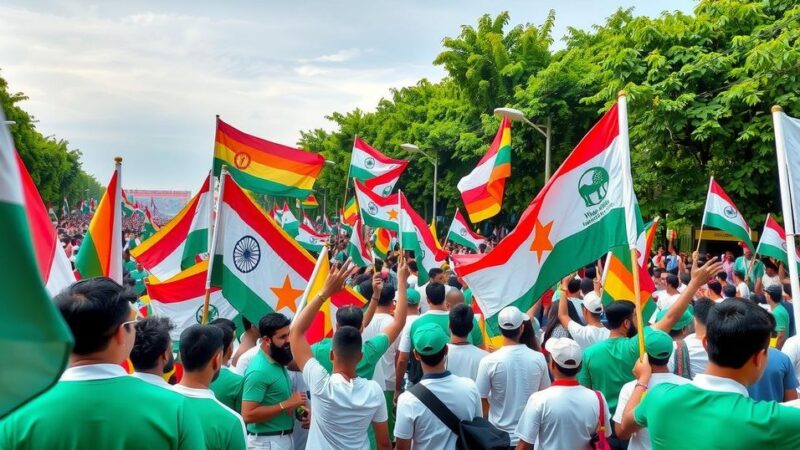Zimbabwe’s President Emmerson Mnangagwa has stated that the SADC stands ready to assist Mozambique amid significant post-election violence related to the October 9 elections. The regional call for dialogue is echoed by South Africa’s Minister of International Relations, Ronald Lomola. Human rights organizations report that the violence has resulted in over 100 deaths and calls for government accountability continue to rise, highlighting the urgent need for peace and engagement in Mozambique.
Zimbabwe’s President Emmerson Mnangagwa, who currently chairs the Southern African Development Community (SADC), has announced that the regional organization is prepared to support Mozambique amidst severe post-election violence. This turmoil has been linked to the recent elections on October 9, during which human rights organizations report that over 100 lives have been lost during protests, fueled by assertions of electoral fraud by opposition parties.
In a recent statement, President Mnangagwa emphasized the necessity for an immediate cessation of violence in Mozambique, following the ruling party, Frelimo’s, claim of a 65% victory by the Constitutional Council. Concurrently, South Africa’s Minister of International Relations and Cooperation, Ronald Lomola, underscored in a social media broadcast the need for dialogue among all factions involved to restore peace and initiate development.
Echoing these sentiments, Venancio Mondlane, a prominent figure in Mozambique’s opposition, indicated that a focus on improving the nation’s status is crucial, pointing out the suffering caused by Frelimo’s actions. Moreover, Khanyo Farise, Deputy Regional Director for Amnesty International, highlighted the distressing response from the Mozambique police, who have deployed excessive force against demonstrators, resulting in numerous severe injuries and fatalities.
Researcher Borges Nhamirre from the Institute for Security Studies emphasized the urgency for dialogue to mitigate chaos in Mozambique, asserting that the closure of ports has led to increased hardships for neighboring nations such as Zimbabwe, Zambia, Malawi, and South Africa. The ongoing call for peace by the opposition and regional bodies presents a glimmer of hope for a resolution to the unfolding crisis.
The current unrest in Mozambique is rooted in allegations of electoral irregularities following the October 9 elections, wherein the ruling Frelimo party was declared the victor. This declaration has sparked significant protests, with opposition leaders claiming their victory was unjustly taken. The resultant violence has drawn international attention, leading to calls for dialogue and support from regional entities such as SADC and the African Union to restore stability. The economic implications of this unrest are dire for the region, given the interconnectedness of trade and support between Mozambique and neighboring countries.
In summary, the turbulent post-election landscape in Mozambique has generated increasing urgency for dialogue among conflicting parties, with calls for assistance from regional bodies like SADC. The tragic loss of life and excessive state responses to protests underscore the necessity for intervention and diplomacy. With prominent leaders advocating for peace, there is an optimistic outlook for the resolution of the crisis, which, if left unaddressed, poses significant economic and humanitarian challenges for the Southern African region.
Original Source: www.voanews.com






